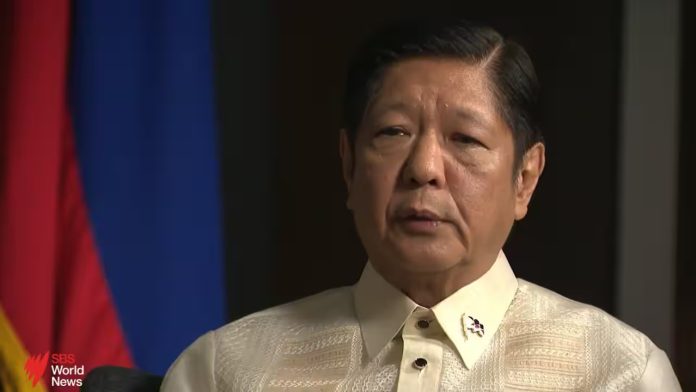President Ferdinand “Bongbong” Marcos Jr.’s continued evasion of the $353 million contempt judgment from a U.S. court is a long-standing issue that ties into the broader historical and legal controversies surrounding the Marcos family. The judgment, which remains unpaid, stems from a case brought by victims of human rights abuses during the martial law era under the rule of his father, the late dictator Ferdinand Marcos Sr. This period in Philippine history was marked by widespread human rights violations, including extrajudicial killings, torture, and the suppression of civil liberties. The U.S. court’s ruling specifically addresses contempt in relation to the Marcoses’ refusal to comply with earlier rulings regarding compensation for these victims.
The case itself originated from a class-action lawsuit filed in the 1990s by nearly 10,000 victims of human rights abuses. In 1995, a U.S. court awarded these victims a massive $2 billion judgment against the estate of Ferdinand Marcos Sr. for damages. However, in the years that followed, the Marcos family reportedly did little to settle these claims, leading to further contempt charges and the subsequent $353 million judgment.
Despite multiple legal attempts to enforce this ruling, the Marcos family has largely evaded responsibility. Legal mechanisms for holding the family accountable in the Philippines and internationally have proven difficult, as Bongbong Marcos, now president, enjoys the immunity granted to a sitting head of state. This immunity complicates efforts to hold him personally accountable for the U.S. court’s ruling, despite his role in managing the family’s assets and estate.
Under international law, the sovereign immunity principle protects sitting presidents from prosecution in foreign courts. This has allowed Marcos Jr. to avoid the contempt judgment while in office, but it remains unclear how long this shield will last, especially after his presidency.
Additionally, efforts to enforce the judgment face practical challenges, such as the location and accessibility of the Marcos family’s assets. Many of these assets are believed to be hidden or dispersed globally, further complicating attempts at collection. Previous efforts to locate and seize these assets have been met with resistance and complex legal battles, both in the Philippines and abroad.
Meanwhile, the case continues to be a thorny issue for Marcos Jr.’s administration. His silence on the matter has been seen by critics as an attempt to distance himself from the abuses of his father’s regime. However, the unresolved judgment is a stark reminder of the dark legacy that still haunts the Marcos family and its place in Philippine politics.
For many Filipinos, the evasion of this judgment represents a broader pattern of unaccountability within the Marcos family. It raises concerns about justice for martial law victims and the rule of law in the Philippines, as well as the broader implications for human rights accountability.
In the international context, the Marcoses’ ability to evade such a significant legal ruling also brings up questions about the strength of international justice systems and the mechanisms available to hold powerful political families accountable. While some legal experts argue that the judgment could still be pursued in the future, the process is fraught with challenges that highlight the limitations of cross-border legal enforcement.
Ultimately, this contempt judgment serves as a symbolic reminder of the ongoing struggle for justice faced by the victims of martial law and their families. As long as the Marcos family remains in power and the ruling remains unenforced, it will continue to be a highly sensitive and polarizing issue in Philippine society and politics.




